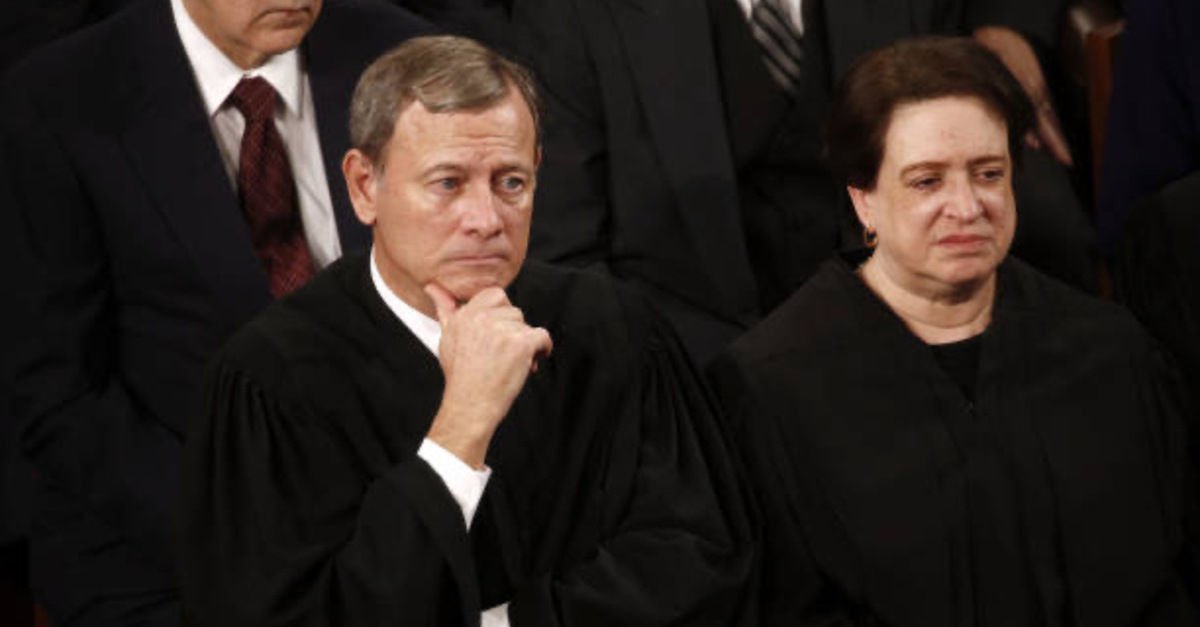
The U.S. Supreme Court on Monday ruled that a Louisiana law requiring abortion clinic doctors to have admitting privileges at a nearby hospital was unconstitutional, as it placed an undue burden on women’s access to the procedure.
In a 5-4 decision, Chief Justice John Roberts sided with the court’s liberal bloc, providing the swing vote in a case that had the potential reshape access to abortion in the United States. The chief justice last week similarly joined liberal majority decisions in highly polarizing cases that extended civil rights protections to LGTBQ people and prevented the Trump administration from ending the Deferred Action for Childhood Arrivals (DACA) program.
In a 40-page opinion penned by Justice Stephen Breyer, the court drew from previous cases such as Planned Parenthood v. Casey and Whole Woman’s Health in concluding that Louisiana’s 2014 Unsafe Abortion Protection Act would severely curtail women’s ability to get an abortion while providing no tangible benefits for patients.
Breyer said that the law offered “no significant health benefit” but would “make it impossible for abortion providers to obtain conforming privileges for reasons that have nothing to do with the Sate’s asserted interests in promoting women’s health and safety,” thereby placing a “substantial obstacle in the path of women seeking abortion.”
“We have examined the extensive record carefully and conclude that it supports the District Court’s findings of fact. Those findings mirror those made in Whole Woman’s Health in every relevant respect and require the same result. We consequently hold that the Louisiana statute is unconstitutional,” Breyer wrote.
Whole Woman’s Health, which was decided the Supreme Court in 2016, struck down an almost identical abortion restriction law in Texas by a 5-3 vote, reasoning that it offered minimal medical benefit and imposed an undue burden on access to abortion.
The deciding vote in that case was cast by the now-retired Anthony Kennedy. Given the addition of conservative justices in Brett Kavanaugh and Neil Gorsuch to the Supreme Court, and given that Chief Justice Roberts wrote a dissenting opinion in Whole Woman’s Health, many court-watchers were wary that the precedent would be overturned.
While he did not join the liberal justices’ opinion, Roberts concurred in the judgment and relied on stare decisis – the legal principle of basing decision on past precedent. Roberts found the Louisiana law unconstitutional, despite his belief that the ruling in Whole Woman’s Health was incorrect.
“I joined the dissent in Whole Woman’s Health and continue to believe that the case was wrongly decided. The question today however is not whether Whole Woman’s Health was right or wrong, but whether to adhere to it in deciding the present case,” Roberts wrote. “The legal doctrine of stare decisis requires us, absent special circumstances, to treat like cases alike. The Louisiana law imposes a burden on access to abortion just as severe as that imposed by the Texas law, for the same reasons. Therefore Louisiana’s law cannot stand under our precedents.”
Conservative Justices Clarence Thomas, Samuel Alito, Gorsuch, and Kavanaugh all wrote dissenting opinions.
Read all of the opinions below.
SCOTUS Abortion Case Decision by Law&Crime on Scribd
[image via Stefani Reynolds/Bloomberg via Getty Images]